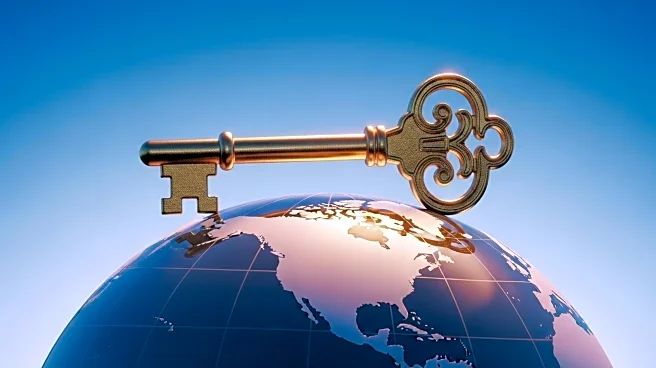What's Happening?
President Trump has arrived in Tel Aviv to oversee the final stages of a ceasefire agreement between Israel and Hamas. This agreement includes the release of 20 living hostages held by Hamas and the exchange of nearly 2,000 Palestinian prisoners. The ceasefire marks a significant development in the two-year conflict that began with a Hamas-led attack on Israel in October 2023. The conflict has resulted in substantial casualties, with over 67,600 Palestinians killed in Gaza, according to Gaza's Health Ministry. Humanitarian aid is being prepared to enter Gaza, with around 600 trucks expected daily, as part of the ceasefire agreement.
Why It's Important?
The ceasefire and prisoner exchange represent a critical step towards peace in the region, potentially easing tensions and reducing violence. The release of hostages and prisoners could foster goodwill and pave the way for further negotiations. Humanitarian aid is crucial for Gaza, where famine conditions have been reported. The involvement of President Trump underscores the U.S.'s role in international diplomacy and conflict resolution, potentially influencing future U.S. foreign policy and relations in the Middle East.
What's Next?
President Trump is scheduled to address Israel's parliament and meet with families of hostages before traveling to Egypt for a peace summit. The summit will involve regional and international leaders, aiming to solidify the ceasefire and discuss further steps towards lasting peace. Key issues remain unresolved, including demands for Hamas to disarm and for Israel to withdraw troops from Gaza. The future governance of Gaza is also uncertain, with ongoing negotiations expected.
Beyond the Headlines
The ceasefire agreement highlights the complex geopolitical dynamics in the Middle East, with implications for regional stability and international relations. Ethical considerations arise regarding the treatment of prisoners and the humanitarian crisis in Gaza. Long-term peace will require addressing underlying issues such as territorial disputes and governance, which could reshape the political landscape in the region.










